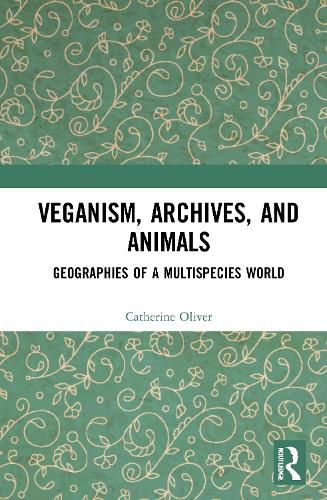Readings Newsletter
Become a Readings Member to make your shopping experience even easier.
Sign in or sign up for free!
You’re not far away from qualifying for FREE standard shipping within Australia
You’ve qualified for FREE standard shipping within Australia
The cart is loading…






This book explores the growing significance of veganism. It brings together important theoretical and empirical insights to offer a historical and contemporary analysis of veganism and our future co-existence with other animals.
Bringing together key concepts from geography, critical animal studies, and feminist theory this book critically addresses veganism as both a subject of study and a spatial approach to the self, society, and everyday life. The book draws upon empirical research through archival research, interviews with vegans in Britain, and a multispecies ethnography with chickens. It argues that the field of 'beyond-human geographies' needs to more seriously take into account veganism as a rising socio-political force and in academic theory. This book provides a unique and timely contribution to debates within animal studies and more-than-human geographies, providing novel insights into the complexities of caring beyond the human.
This book will appeal to students and scholars interested in geography, sociology, animal studies, food studies and consumption, and those researching veganism.
$9.00 standard shipping within Australia
FREE standard shipping within Australia for orders over $100.00
Express & International shipping calculated at checkout
This book explores the growing significance of veganism. It brings together important theoretical and empirical insights to offer a historical and contemporary analysis of veganism and our future co-existence with other animals.
Bringing together key concepts from geography, critical animal studies, and feminist theory this book critically addresses veganism as both a subject of study and a spatial approach to the self, society, and everyday life. The book draws upon empirical research through archival research, interviews with vegans in Britain, and a multispecies ethnography with chickens. It argues that the field of 'beyond-human geographies' needs to more seriously take into account veganism as a rising socio-political force and in academic theory. This book provides a unique and timely contribution to debates within animal studies and more-than-human geographies, providing novel insights into the complexities of caring beyond the human.
This book will appeal to students and scholars interested in geography, sociology, animal studies, food studies and consumption, and those researching veganism.